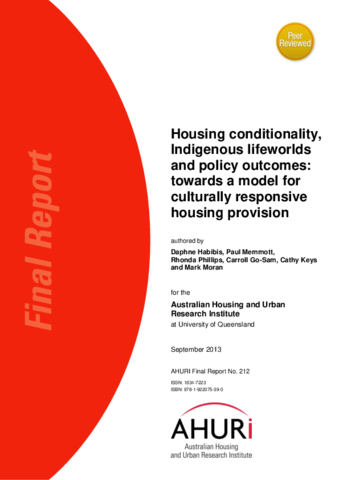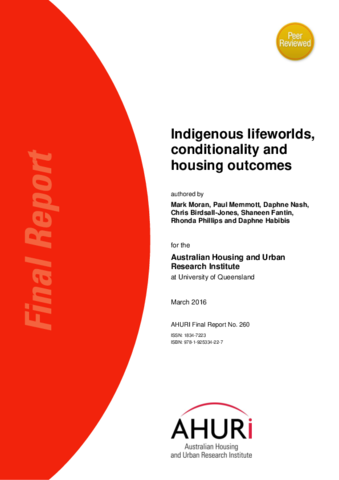This study considers how conditionality in housing policy and management contributes to housing outcomes, and what modes of conditionality are most effective and in what contexts for Indigenous clients.
It considers the most effective co-related household and governance arrangements to enable forms of reciprocity to occur. A key hypothesis tested is the critical necessity for a ‘recognition space’ involving mutual recognition of the moral relationships of duty and care between SHAs, intermediary organisations and tenants. The project included a literature review of housing policy in different jurisdictions spanning several decades to the present and undertook five separate qualitative case studies across remote, regional and metropolitan locations in the Northern Territory, Western Australia and Queensland.
The analysis of the tenant, government and Indigenous organisational perceptions showed that the three groups were often seeking different outcomes, leading to considerable misunderstanding and diversity of views.
The study looked specifically at good practice and principles for broader policy uptake. It identified the need for local implementation plans, based broadly on the existing consensus of achieving safe and secure housing for the tenants with the highest need. These plans could be developed using the principle of participatory planning and evaluation. Positive impacts can be achieved when tenants and housing officers enter a recognition space where conditionalities can be negotiated. Successful negotiations require not only clear rules and conditionalities, but also the flexibility to contextualise and adapt to them.



